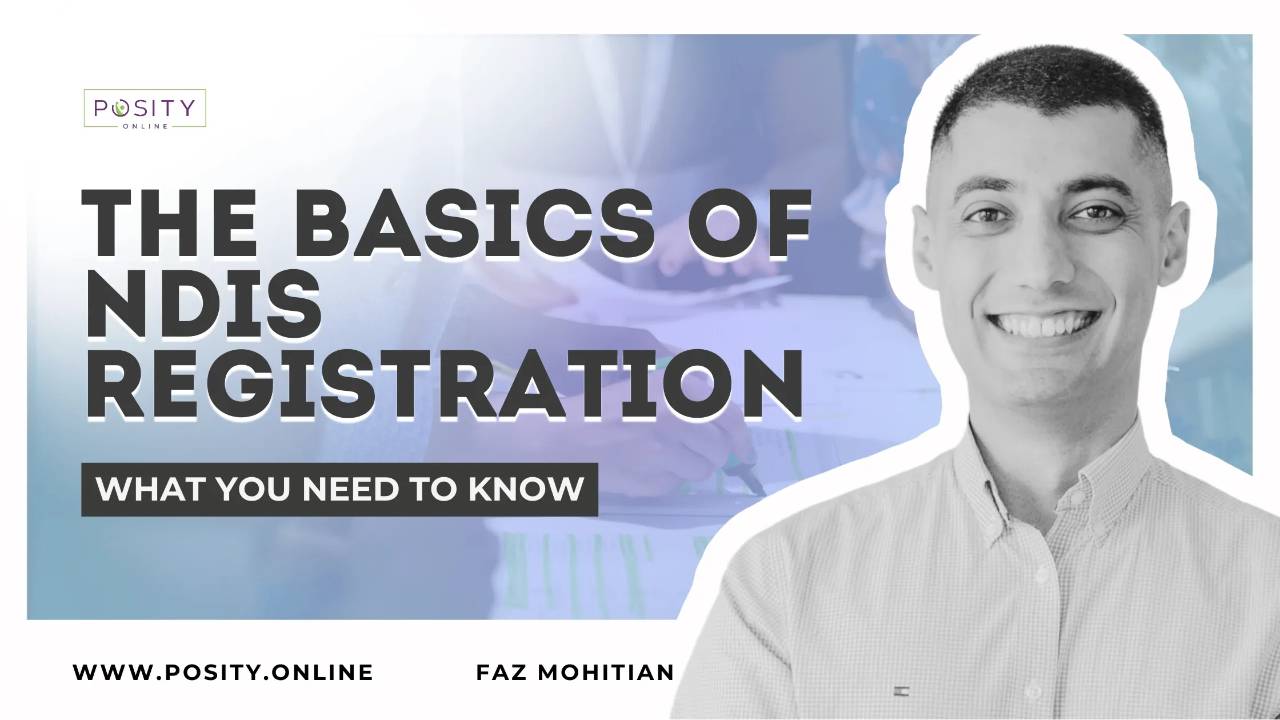The National Disability Insurance Scheme (NDIS) is a transformative program designed to support Australians with permanent and significant disabilities. For providers, NDIS registration ensures the delivery of high-quality services aligned with participant needs.
The Basics of NDIS Registration
Why is registration important? It builds credibility, ensures compliance, and opens the door to working with a broader range of participants. For participants, registered providers guarantee adherence to stringent standards, providing peace of mind and better service quality.
What is NDIS Registration?
NDIS registration is the process providers must undergo to deliver supports and services funded under the NDIS. It involves demonstrating compliance with the NDIS Practice Standards and meeting the requirements set by the NDIS Quality and Safeguards Commission.
Key Features of NDIS Provider Registration:
- Definition and Purpose:
Registration signifies that providers meet strict standards, ensuring quality and safety for participants.
- Registered vs. Unregistered Providers:
Registered providers can work with participants who have NDIA-managed plans, whereas unregistered providers are limited to plan-managed or self-managed participants.
Discover the key differences between Unregistered and Registered NDIS Providers in our comprehensive guide.
- Services Requiring Registration:
High-risk or complex services, such as specialist behaviour supports, require registration to ensure safety and compliance.
Why Should Providers Register with the NDIS?
Benefits of Registration:
- Build Credibility:
Registered providers are recognised as meeting the highest standards, fostering trust with participants and their families.
- Access a Broader Participant Base:
Registration allows you to work with NDIA-managed participants, increasing your reach and opportunities.
- Compliance with Practice Standards:
Registration ensures you meet all legal and ethical obligations, safeguarding your business.
- Growth Opportunities:
Registration opens pathways for business coaching, professional development, and the ability to offer diverse services.
Steps to Register as an NDIS Provider
Becoming an NDIS registered provider involves several steps, each critical to ensuring compliance and readiness.
1. Understand the NDIS Practice Standards
Overview:
These core standards outline the requirements for quality, safety, and participant outcomes.
Relevance:
Standards vary based on the types of services offered, ensuring tailored compliance.
2. Prepare Key Documentation
Gap Analysis:
Conducting a gap analysis helps identify areas needing improvement before submitting your application.
3. Complete the Application Process
How to Apply:
Submit your application via the NDIS Commission Portal, ensuring all fields are completed accurately.
4. Undergo the NDIS Audit
Audit Types:
Initial and mid-term audits are conducted to assess compliance with the standards.
How Much Does It Cost to Become an NDIS Provider?
Understanding the costs of NDIS registration is crucial for effective planning. At Posity Online, we offer two tailored packages to help you navigate the process efficiently:
NDIS Registration Packages
Here’s a general breakdown of costs:
Insurance Cost:
Public Liability, Professional Indemnity, and WorkCover Insurance.
Audit Costs:
Initial audits typically cost between $3,000 and $10,000, depending on your organisation’s size and complexity.
Financial Planning Tips
- Leverage Posity Online’s expert guidance to budget for registration and operational expenses.
- Our comprehensive packages include step-by-step support, from documentation preparation to audit readiness, ensuring no hidden surprises.
For more details, visit Posity Online NDIS Registration Packages.
Benefits of Being an NDIS Registered Provider
Why It Matters:
- Participant Trust:
Registered providers instil confidence by meeting stringent standards.
- Access to NDIA-Managed Funds:
Broaden your client base with participants who have NDIA-managed plans.
- Wider Service Offerings:
Registration enables you to provide complex and high-intensity services.
- Compliance Assurance:
Regular audits and certifications demonstrate your commitment to quality.
Challenges of NDIS Registration and How to Overcome Them
Common Obstacles:
- Complex Regulations:
Navigating NDIS guidelines can be overwhelming.
- Time-Consuming Processes:
The documentation and audit requirements can be extensive.
- Knowledge Gaps:
Lack of familiarity with NDIS policies may lead to mistakes.
Maintaining Compliance After Registration
Compliance doesn’t end with registration—it’s an ongoing commitment.
Tips for Success:
- Internal Audits:
Schedule regular audits to identify and address compliance issues.
- Staff Training:
Invest in workshops and professional development to ensure your team understands evolving requirements.
- Digital Tools:
Use platforms designed for NDIS providers to track and manage compliance effortlessly.
Conclusion: The Value of NDIS Registration
Becoming an NDIS registered provider is more than just a regulatory requirement—it’s a commitment to delivering quality care and fostering trust with participants. By prioritising compliance and leveraging available resources, you can position your business for success.
Take Action Today: Contact Posity Online for expert guidance on NDIS registration and compliance. Let us help you navigate the process with confidence.
We love helping businesses become Registered NDIS Providers.
Ready to simplify your journey? Book a FREE consultation now! 👇








